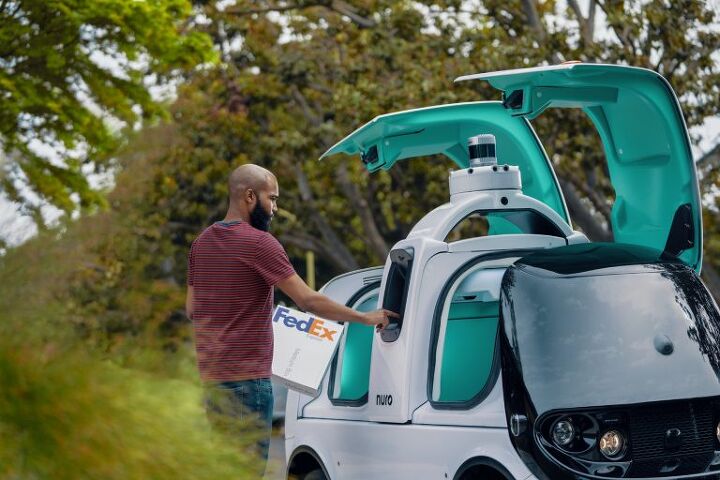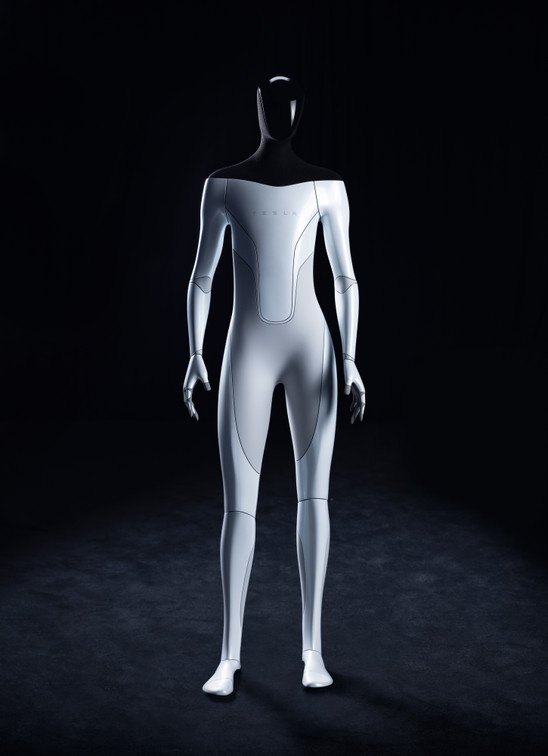#Ai
Volkswagen Shows ID.7 and Camo GTI at CES, Announces AI Integration
Given the hype around AI, this year’s CES soirée in the Las Vegas desert is sure to be awash with such technology – most of which will likely be deployed in strange and perhaps terrifying ways. Arguably falling into the latter category is VW’s decision to present the first vehicles in which the artificial-intelligence-based chatbot ChatGPT is integrated into its IDA voice assistant.
Some good news? The feature is only being “considered for the United States” at the moment.
QOTD: AI in Cars?
GM CEO Mary Barra was talking AI on Fox Business the other day, though she and GM vice president Scott Miller didn't say much in the way of specifics, mostly referencing things like using AI as a voice assistant or for syncing a driver's calendar to the car.
General Motors Eyes AI for Vehicle Inspections
General Motors is looking into using artificial intelligence — AI — as part of its vehicle-inspection process.
GM has made an investment in Israeli startup UVeye, a company that makes vehicle diagnostic systems.
Nuro Raises $600 Million, Valuation Reaches $8.6 Billion
While the concept of mobility has often turned out to be a buzz phrase used by executives unsure of where to place hypothetical revenue streams and burgeoning technologies, it has simultaneously yielded a handful of enterprising business premises with the potential to stand on their own. Nuro, the American robotics company fielding pint-sized delivery drones, is among them and has made a case for itself by eliminating humans from the equation entirely and providing unique scenarios for its services.
The startup has been getting a smattering of positive attention since its formation in 2015 and recently raised $600 million during its latest funding round, bringing its valuation to an impressive $8.6 billion.
Welcome the New Robot Overlords: Tesla Announces Plans for Robot
Tesla announced at its AI Day that it plans to build a humanoid robot.
It’s apparently not a joke, despite the fact that the company used a human dancer in a Spandex suit as a stand-in for the real robot.
Penske & Cox Premiere AI Based Auto Sales Platform With Confusing Name
Years ago, waiting for a haircut, dental appointment, or psychological evaluation meant thumbing through a paperback filled with local listings of automobiles you had convinced yourself you might be in the market for. While primarily an exercise for wasting one’s time, there was always a chance you’d run to a payphone or whip our your Nextel to contact the seller so you could begin the delicate dance of commerce.
BMW Art Cars Exhibited
BMW art cars debuted today, using artificial intelligence (AI) software to generate new works of art. In conjunction with Frieze New York, the fair takes place in Manhattan from May 5 – 9, 2021.
Frieze New York has works of art from over 60 galleries, mainly located in New York. A viewing room with over 160 exhibitors runs through May 14, bringing together galleries worldwide, and audiences who can’t travel.
Starsky Robotics Shuts Down, CEO Says Self-driving Industry Is Losing Steam
Starsky Robotics is shutting down, ending whatever prospects it had at becoming the world’s premier self-driving company for long-haul trucking. The business has hit a snag with funding, with CEO Stefan Seltz-Axmacher announcing the fundraising it scheduled for November worked out rather badly.
Lacking capital was what ultimately killed Starsky Robotics, though Seltz-Axmacher claims the issue is quite a bit more complicated than that. Despite making significant progress with his own company, he now feels Starsky and the rest of the world has been incredibly naive in how it handled autonomous vehicles. He also believes there’s something deeply wrong with the burgeoning AV industry — it’s becoming bloated, progress has been slower than promised, investors don’t understand anything about the technology, and artificial intelligence is deeply flawed.
Australia Introduces Phone Detection Cameras for Roads
Australia put up the first phone-detecting cameras in New South Wales over the weekend. The move is part of a broader plan to reduce roadway fatalities by 30 percent by 2021 — especially as new technologies continue to exacerbate the issue of distracted driving. “It’s a system to change the culture,” NSW Police Assistant Commissioner Michael Corboy told Australian media las week.
There’s nothing incredibly new about the cameras themselves. But they’re networked to an artificial intelligence that determines whether or not someone behind the wheel is using their phone. Suspect images are then forwarded to authorized personnel to be verified as truly criminal.
Global Survey Reveals Who We'd Prefer to Sacrifice on the Bumper of a Self-driving Car
In 2014, as publications and automakers began making greater noise about autonomous vehicles, researchers at MIT’s Media Lab issued some questions to the public. The institute’s Moral Machines experiment offered up a series of scenarios in which a self-driving car that has lost its brakes has to hit one of two targets, then asked the respondents which of the two targets they’d prefer to see the car hit.
Four years later, the results are in. If our future vehicles are to drive themselves, they’ll need to have moral choices programmed into their AI-controlled accident avoidance systems. And now we know exactly who the public would like to see fall under the wheels of these cars.
However, there’s a problem: agreement on who to sacrifice differs greatly from country to country.
Uber Builds New AI Team North of the Border as It Battles Lawsuit in the U.S.
Uber must be feeling somewhat confident in its legal battle with Waymo over stolen autonomous tech, because it’s assembling a new artificial intelligence team in Canada.
The group will serve as part of Uber’s Advanced Technologies Group, which has found itself at the core of the lawsuit, and focus on enhancing the company’s autonomous vehicle software.
Toyota Launches AI Efforts With $1 Billion Investment
Toyota will open a new artificial and robotics R&D company to be called Toyota Research Institute, Inc. (TRI) with an initial investment of $1 billion to open two locations in the United States, the automaker announced Friday.
TRI, which will make its headquarters in Palo Alto, California and establish another office in Cambridge, Massachusetts near MIT, will be led by Dr. Gill Pratt, a former academic in the field of engineering and program manager at DARPA.
“The investment is in addition to the $50 million investment over the next five years with MIT and Stanford to establish joint fundamental artificial intelligence research centers at each university,” said the automaker in a release.
Toyota Will Spend $50M Researching The Perfect Robot Car
Toyota announced Friday it would invest $50 million in research facilities at Stanford and the Massachusetts Institute of Technology to study and develop artificial intelligence for future safety and autonomous driving.
The facilities will teach computers to recognize and monitor objects — a swerving car vs. a parking one was provided as one example — on the road that drivers are too busy for because “Candy Crush.”
The joint programs at MIT and Stanford will first develop enhanced safety systems designed to “share control” with drivers and computers. Eventually, researchers believe, people will just forget that they care and give up driving to the robots.



























Recent Comments